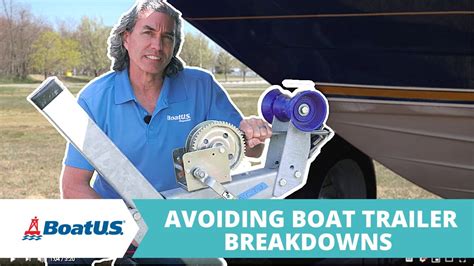Prevent Breakdowns: Correct Boat Trailer Sizing Practices
Towing your boat should be an enjoyable experience, not a stressful ordeal punctuated by breakdowns. A major contributor to towing mishaps is incorrect boat trailer sizing. Choosing the wrong trailer can lead to accidents, damage to your boat and vehicle, and costly repairs. This comprehensive guide outlines the crucial steps to ensure your boat trailer is correctly sized, minimizing risks and maximizing safety.
What Happens When Your Boat Trailer is Incorrectly Sized?
Using an improperly sized trailer carries significant risks. A trailer that's too small can lead to:
- Boat instability: The boat may sway excessively, making it difficult to control, especially in windy conditions or on uneven roads.
- Structural damage: The boat's hull could be damaged from excessive stress and pressure. The trailer itself might buckle or break under the weight.
- Loss of control: A poorly balanced load can cause the trailer to sway violently, potentially leading to a jackknife or rollover accident.
- Damage to your vehicle: The added stress can damage your vehicle's suspension, transmission, or braking system.
Conversely, a trailer that's too large presents its own set of problems:
- Maneuverability issues: A larger trailer can be more difficult to maneuver, especially in tight spaces.
- Increased fuel consumption: Towing a heavier, larger trailer requires more fuel.
- Unnecessary expense: You'll be paying for a trailer with more capacity than you need.
How to Determine the Correct Boat Trailer Size: A Step-by-Step Guide
Accurately sizing your boat trailer involves several key measurements and considerations:
1. Boat Weight: This is the most critical factor. You need the actual weight of your boat, fully loaded with fuel, gear, and passengers. Avoid relying solely on manufacturer's estimates. A certified weigh station can provide an accurate measurement.
2. Boat Length: Measure the overall length of your boat, including the motor and any other external features.
3. Boat Beam: This is the widest point of your boat.
4. Trailer Tongue Weight: This is the weight distributed on the hitch ball of your tow vehicle. It’s crucial to keep this within the tow vehicle's recommended limits to prevent overloading.
5. Axle Capacity: The trailer's axles must have a combined capacity that exceeds your boat's weight. Check the axle's weight rating, ensuring it's appropriate for your boat and gear.
6. Trailer Type: Different boat types require different trailer designs. Consider bunked trailers, roller trailers, and keel-supported trailers, selecting the type best suited for your boat's hull.
7. Braking System: For heavier boats, a braking system on the trailer itself is essential to ensure safe stopping power. Your state may also have legal requirements for trailer brakes based on weight.
What is the Proper Tongue Weight Ratio for My Boat Trailer?
The ideal tongue weight is generally 10-15% of the total trailer weight. This ensures proper weight distribution, enhancing stability and control during towing. An improperly distributed tongue weight can make your boat and trailer dangerously difficult to handle.
How Do I Choose Between a Single or Tandem Axle Trailer?
The choice between single and tandem axle trailers depends primarily on the weight of your boat. Generally:
- Single axle trailers are suitable for lighter boats. They're less expensive and easier to maneuver.
- Tandem axle trailers are better suited for heavier boats, providing superior stability and weight distribution.
What are Some Common Mistakes to Avoid When Choosing a Boat Trailer?
- Underestimating boat weight: Always weigh your boat fully loaded to determine its true weight.
- Ignoring tongue weight: Maintaining the correct tongue weight is crucial for safety and stability.
- Neglecting brake requirements: Heavier boats necessitate trailer brakes for safety and compliance with legal regulations.
- Choosing a trailer based solely on price: Prioritize safety and suitability over cost when selecting a boat trailer.
By diligently following these guidelines, you can confidently choose a correctly sized boat trailer, ensuring safe and enjoyable towing experiences for years to come. Remember, safety should always be your top priority. If you have any doubts or are unsure about any aspect of trailer sizing, consult with a qualified marine professional.

